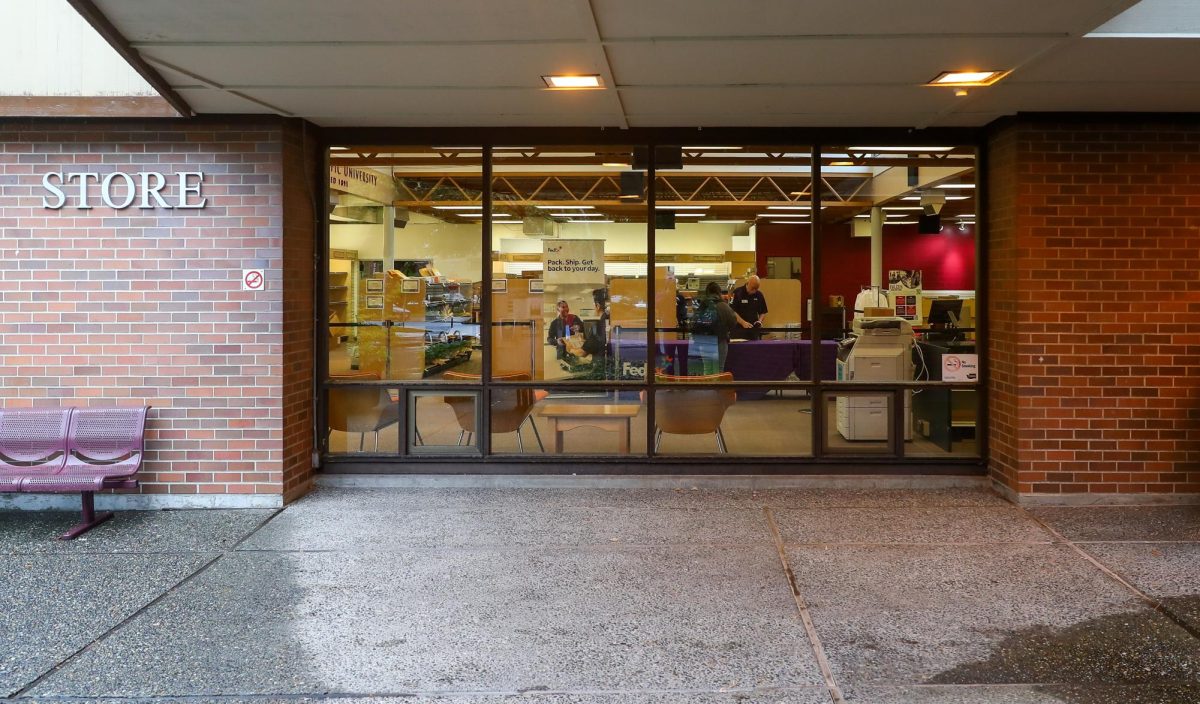On July 28, 2023, the Seattle Pacific University bookstore launched Falcon Advantage, a course material program available through a partnership between SPU and Akadémos, Inc. This initiative was conceived to ensure fair and equal access to essential course materials for all students, regardless of financial circumstances. So far, the program has proven helpful for some but annoying for others.
Falcon Advantage implements a pricing model that disregards individual textbook costs to achieve the program’s goal. Based on professor recommendations and what the program can provide, the distributed textbooks vary from digital copies—access codes emailed to the students—to physical ones picked up at the Falcon’s Post, better known as the revamped campus bookstore and mailing office.
Through Falcon Advantage, students can secure their required course materials before the first day of class. The program operates on a per-quarter flat fee structure based on students’ credit hours ($18/credit hour) for a more fair pricing of course materials.
While participation in the Falcon Advantage program is optional, students who choose not to enroll must opt-out each quarter or else be charged the flat fee. However, this opt-out process has proven to be frustrating and inconvenient for some students who do not intend to utilize the program.
In the fall quarter of 2023, the Falcon Advantage Program had a rocky start, with challenges reported by both students and professors.
Reflecting on the initial rollout, senior food and nutritional science major Elyse Browder shared a common sentiment of confusion about the program’s effectiveness.
“At the beginning, it was confusing because I didn’t know where my books were going, and some of them weren’t ready yet,” Browder said.
Some students were put off by the heavy use of digital books. Freshman computer science major Rachel Krivanek was one such student.
“I don’t really like using digital books, and I would almost rather just buy used books that were actual physical books than pay for something that I’m only going to get for a quarter,” Krivanek said.
Since the fall quarter, problems with the program have frustrated students and professors alike. Given that the program is still in its infancy and services many students, there will be issues. However, improvements have been made throughout the academic year so that each quarter, the use of the program becomes smoother.
As SPU enters the fourth week of the spring quarter, it is a good time to ask: is Falcon Advantage worth it?
Freshman physiology major Jamila Abdulalim shared her thoughts on the program, claiming that it is helpful for courses with a heavy textbook load.
“We had a lot of books assigned last quarter and this quarter. So it was really helpful,” Abdulalim said. “I’m really thankful to be in the program and to be able to pick up the books because I feel like people pay out of pocket for those things.”
Abdulalim also stated that the program feels accessible and budget-friendly.
“It’s been easy to grab my books when I go to the bookstore. I can give them my ID, and that’s it! I don’t have to pay for anything else,” Abdulalim said.
The consensus among students appears to be that Falcon Advantage’s value varies depending on an individual’s circumstance, course load and major. As the program evolves, continued evaluation and adaptation will be essential to meet the diverse needs of SPU students.
“I would say for food and nutritional science, we have a good amount of textbooks. So I think it’s worth the cost, at least for me,” Browder said.

















































































